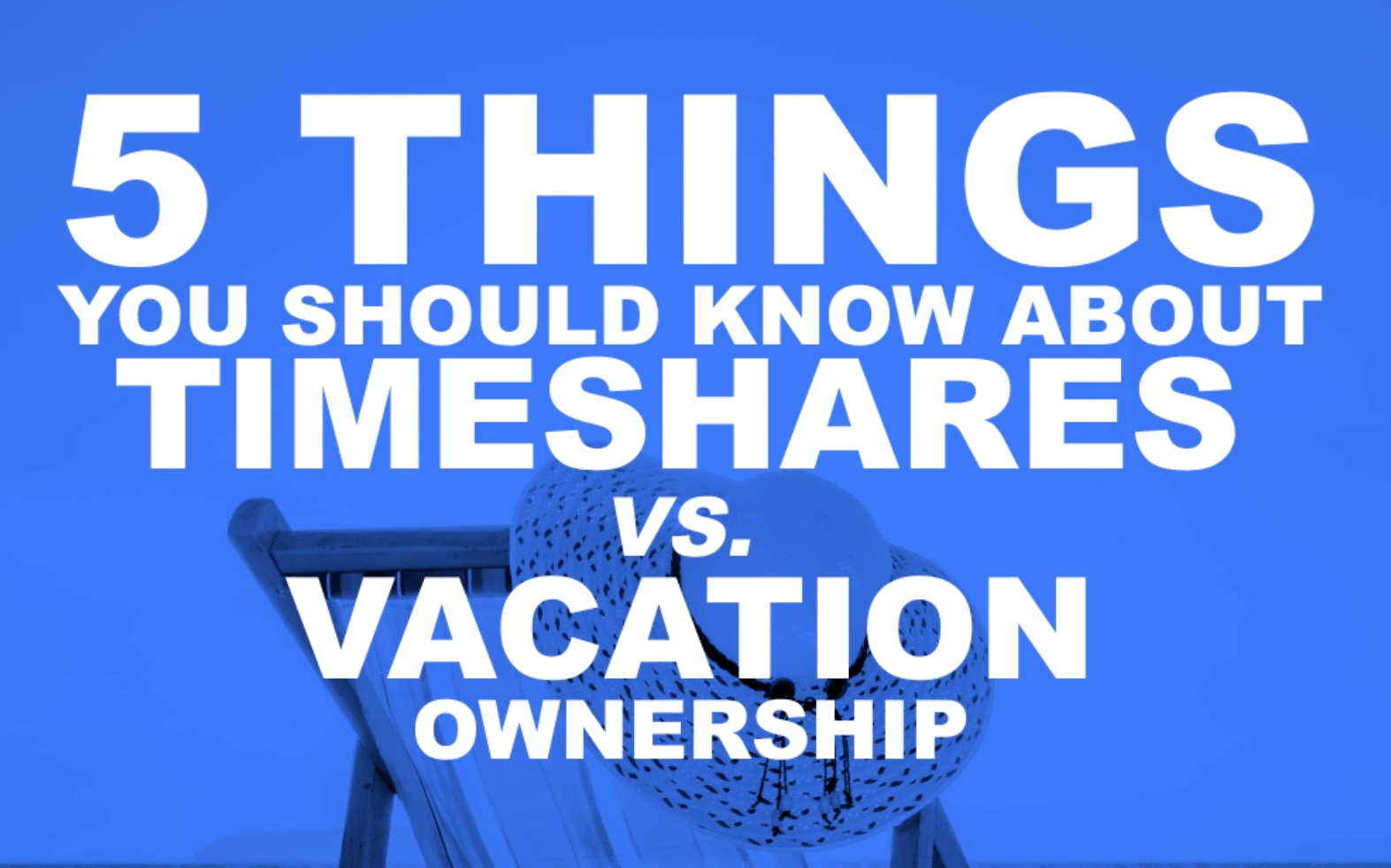Table of Contents
From Vacation Dream to Controversial Industry: Tracing the Evolution of Timeshares
Timeshares have transformed since their introduction as a new format of vacation ownership. Established in the 1960s, the timeshare industry sought to change how the average person vacations. Today, they hold a considerable influence on the minds of travelers.
For those looking to understand the history of timeshares and how this unique form of vacationing came to be, this article is for you. Below are answers to common questions regarding timeshares, such as how they work, the industry’s history, and whether they make suitable investments.
Let’s start with the basics.
FREE
Timeshare Exit Info Kit
Get your free Timeshare Exit Info Kit today to learn more about Wesley Financial Group and how we may be able to help you get out of your timeshare.
What Is a Timeshare?
A timeshare is a resort unit or vacation property purchased under a shared ownership model. In other words, timeshare ownership means that multiple people own the same property. Each owner has the right to use the property for a specific time each year. The most common arrangement is for every owner to receive one designated week per year, allowing for as many as 52 owners. Alas, there are more flexible options.
When purchasing a timeshare, the general impression is that you save money by pre-booking and pre-paying for vacations. However, obstacles often prevent people from utilizing their property.
What Is the Origin of Timeshares?
The origin of timeshares can be traced back to the early 1960s when a group of ski resort developers in the French Alps began renting out space in their hotels to vacationers. This model was later adopted by other resort developers in the United States and has since become a popular vacation and travel option for many people worldwide.
How Many Timeshare Resorts Are There?
There are over 5,000 timeshare resorts in the United States and over 1,000 timeshare resorts worldwide. This number is expected to increase in the coming years as more people become interested in timeshare ownership and new resorts get constructed.
How Do Timeshares Work?
Timeshare agreements permit owners to have a one-week vacation at the same location each year. Still, that can vary. Some have timeshares that last two weeks or a month. Timeshares can be broken down into various subcategories, depending on how they are used and their ownership. Options include deeded timeshares, right-to-use timeshares, points-based timeshares, and fractional ownership. Each of these options provides different benefits and drawbacks, and it’s important to understand the differences before making a decision.
Following are the two ownership options when buying a timeshare:
- Deeded Ownership: The property interest gets divided amongst buyers, each receiving a deeded title. Like traditional vacation real estate, deeded timeshare agreements do not expire and have special ownership rights. For instance, owners are free to resell, rent, or donate their units. Alas, some restrictions apply when compared to typical real estate.
- Right-to-Use Ownership: Allows owners to lease a unit. A shared interest in timeshare ownership can be leased between ten and a hundred years. Since it is more akin to property renting, title deeds remain with the timeshare developers. Other than being less expensive at times, right-to-use timeshares do not offer the same benefits as deeded timeshares.
Following are the ways to utilize one’s timeshare:
- Fixed-Week: Owners have exclusive access to their timeshare during the same week of every year. However, it can be restrictive for those who cannot guarantee to take off the same week each year.
- Floating-Week: floating week models work best for those who want to go to the same location on future vacations but at different times each year. Owners are designated a season to select a week from each year, but the downside is that others might be vying for the same week.
- Points-Based: Within this system, the idea of weeks gets replaced by points to trade for vacation time. Each year, owners have a set number of points. They can use them to book trips to assorted destinations at various times of the year. Although points offer more flexibility, there can be disparities in how they are given and utilized.
- Exchange Programs: Many owners tire of visiting the same resort. To alleviate the issue, some developers offer exchange programs. These initiatives allow owners to trade their week in one place for someone else’s week elsewhere. Alas, it involves more fees.

What Is the History of Timeshares?
Timeshares began in 1963 when a few European property developers changed their marketing strategies aimed at vacation-goers. They encouraged travelers to invest in owning one through right-to-use agreements instead of renting hotel rooms. The saying goes, “it’s cheaper to buy the hotel than to rent the room.”
By the decade’s end, this idea made its way to the United States with the first hotel-condominium timeshare opening in Hawaii. Not long after that, states such as California and Florida followed suit. Initially, the timeshare industry remained a niche market, but a decade later, in the 1970s, it witnessed considerable growth.
With the founding of the American Resort Development Association (ARDA), timeshares now had a promotional outlet for further developments. Popularity reached an all-time high during the emergence of exchange companies like Resort Condominiums International (RCI) in 1974 and Interval International (II) in 1976. Innovations like this continued to help the industry grow, and several large hospitality corporations began taking notice.
In the 1980s and 1990s, hotel chains like Disney, Hilton, Marriott, and more stepped in. With the backing of many recognized establishments, more individuals were buying into it. The “timeshare movement” had arrived and continues to this day. Though, as more time has passed, skepticism has also grown, with many questioning the investment value of timeshares.
How Is the Timeshare Industry Evolving?
The timeshare industry has seen many changes over the years, from the introduction of new technology to the rise of alternative vacation models. As the timeshare industry adapts to the changing market, it’s important to understand how these changes will affect consumers and the industry itself.
Are Timeshares Still Popular?
Yes, timeshares are still a popular vacation option for many people. According to a survey by the American Resort Development Association (ARDA), over 2.3 million households in the United States own a timeshare, and many of these owners are repeat customers.
Are Timeshares a Good Investment?
Whether timeshare ownership is a good investment depends on the individual’s financial goals and budget. Timeshares can offer a range of benefits, including the ability to purchase vacation time at a fraction of the cost of a traditional vacation package and the ability to enjoy vacations in a variety of locations. However, it is important to consider the potential costs associated with timeshare ownership, such as annual fees and maintenance fees.
Despite the timeshare experience being pleasant for some, the disadvantages of timeshare ownership outweigh the good more times than not.
What Are the Benefits of Timeshares?
Owning a timeshare can have its upsides. For example, a timeshare might be a good option if you are looking for a pre-booked annual vacation and have the financial means to support it. Another advantage is that some owners can experience holidays in many exotic locations without keeping up with increasing hotel costs. Albeit, buying a timeshare can also come with the risk of falling into a financial pit if not careful.
What Are the Drawbacks of Timeshares?
Those considering purchasing one should weigh out the pros and cons. In regard to that, below are several prominent reasons that timeshare owners regret their purchase:
- Timeshare vendors are not always credible: Beware of assertive resort merchants. Their sales presentations are often full of high-pressure tactics, which can make folks feel burdened into buying. Timeshare purchases should not be taken lightly, and sellers should not push buyers into regretful decisions.
- Booking disputes are common: Although vacations are paid for in advance, some find the process stressful and full of extra fees. In addition, depending on the type of timeshare, making reservations can take time and effort. As a result, some owners never get to use their timeshare.
- Upfront costs and rising maintenance fees: From the initial price for a weekly interval, which ARDA claims the average to be $24,140, to the annual maintenance fees and special assessments that never cease, timeshares are expensive. Failing to keep up with these payments can result in the property developer foreclosing on the timeshare.
Wesley Financial Group*
While the timeshare business is one way that destination resorts make profits, they do not always work out for the buyers. There are often obstacles that prevent them from using their property to its fullest potential as promised. A timeshare may fulfill a particular purpose if modestly priced, but that alone does not make it a profitable investment.
If you or someone you know are a timeshare owner looking for help canceling the purchase agreement, contact a representative at Wesley Financial Group. We have a team of professionals who can guide you through the process and terminate that deal. We have helped thousands of individuals cancel their timeshare, and we may be able to help you. Reach out today to schedule a free consultation.

Over 50,000 families helped!
Find out if you can cancel your timeshare. Schedule a FREE consultation with timeshare cancellation experts now.
Get Rid of Your Timeshare
Schedule a FREE Consultation with one of our timeshare cancellation experts who have saved families over $635 million.










